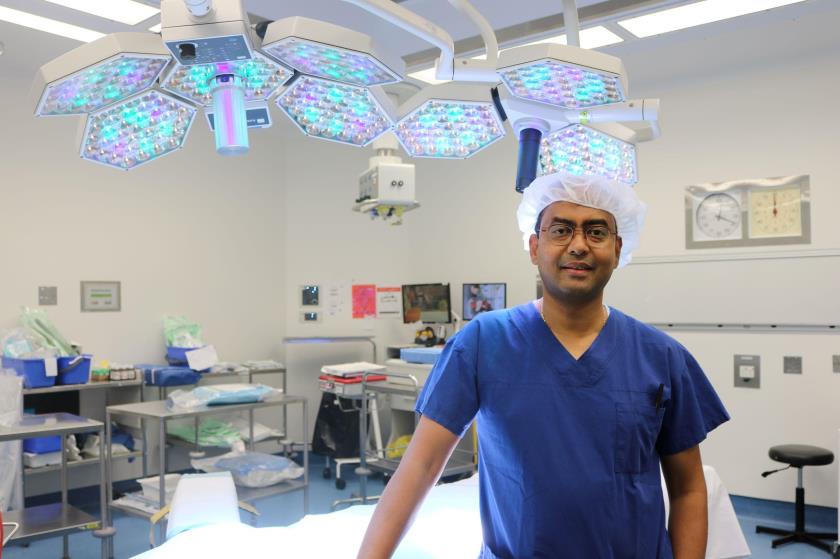The number of people being diagnosed with pancreatic cancer across the country is ever increasing.
It is the fourth-leading cause of cancer-related death in Australian men and the fifth-leading cause in women, with an overall five-year survival rate of less than 10%.
Risk factors for pancreatic cancer
There are various risk factors for developing this lethal cancer. The average age of diagnosing pancreatic cancer is around 71 years. Men are 30% more likely to diagnosed as compared to women. Prolonged tobacco use is linked to an increased risk of developing pancreatic cancer by 20-30%. Other significant risk factors include long-standing diabetes, obesity, chronic pancreatitis and strong family history.
Diagnosing and treating pancreatic cancer
Pancreatic cancer is a silent disease as it tends to be asymptomatic until its later stages. Depending on the location of the cancer within the pancreas, the patient may present with jaundice, weight loss, backache, changes in stool, diabetes and blood clots.
In order to diagnose pancreatic cancer, patients require various blood tests ordered by a general practitioner. Imaging tests such as CT and PET scans will also be required, plus a biopsy via an endoscopy.
Professor Mayank Bhandari said surgical techniques and outcomes for pancreatic cancer have significantly evolved over the past decade.
“Depending on the location of the tumour or tumours, surgical options include Pancreatico-duodenectomy (Whipple’s procedure), distal pancreatectomy or total removal of the pancreas,” he said.
“Pancreatic surgery is associated with significant morbidity and mortality. In order to have best outcomes it is very important that these surgeries are carried out by experienced surgeons.”
While surgery is one of the most viable options for possible curative therapy, it is only conceivable for 15-20% of patients at the time of their initial diagnosis. In these patients when surgery is followed by chemotherapy it can achieve a five year survival of approximately 35%.
Advanced pancreatic cancer
About 30-40% of patients with pancreatic cancer present with locally advanced disease, or stage III cancer. These patients are not candidates for surgery as due to major vascular involvement or are borderline resectable (removable by surgery) cancers.
For these patients, irreversible electroporation (IRE) or NanoKnife® can be used as a technology to prolong life and treat symptoms.
The aim of IRE is to slow the growth of pancreatic cancer by destroying cancerous cells. This procedure involves the delivery of a series of high voltage direct current electrical pulses between electrodes placed within the targeted tissue area. These electrical pulses produce an electric field which induces electroporation on cells.
Recent evidence suggests that these technologies can convert these patients to resectable with good medium-term outcome.
About 50% of patients with pancreatic cancer are diagnosed with metastatic disease at presentation. This means the cancer is no longer localised to the pancreas and cancer cells have spread to new areas of the body. In these patients, chemotherapy is palliative and the principal goals are to control disease spread and improve quality of life.
Many patients are now offered preoperative chemotherapy or chemoradiotherapy. This may improve resection rate in resectable and borderline resectable cancer patients and may potentially downstage locally advanced disease. This may have a positive impact on survival.
Advances in technologies
Prof Bhandari said with limitations in current treatment strategies, new research avenues have been explored.
“There has been ongoing research in understanding of the tumour biology which has now become the basis of developing novel targeted agents, immunotherapy and identifying biomarkers for this disease,” he said.
“Novel therapeutic modalities like oncolytic viral therapy and gene editing technology have also been identified as promising in several pre-clinical and early phase clinical trials."
“There have been no guidelines for preventing pancreatic cancer. The best approach is to avoid risk factors where possible.”


